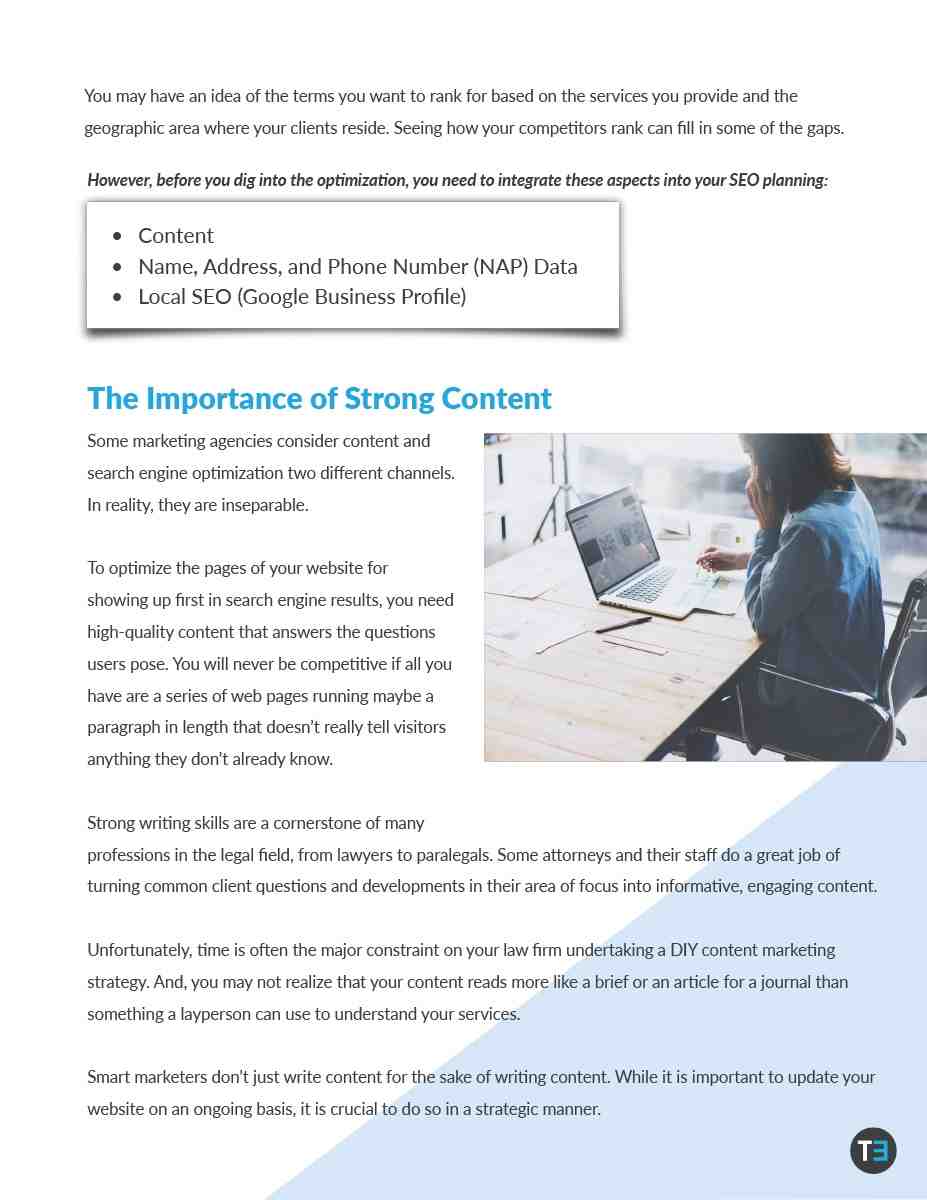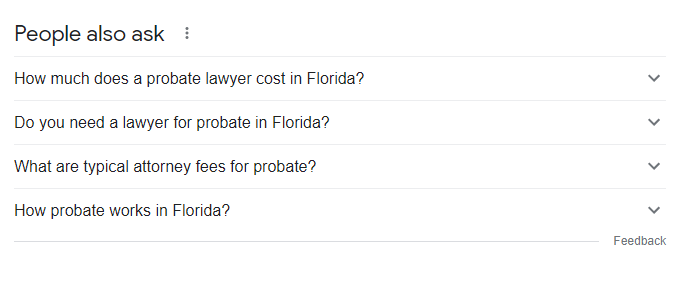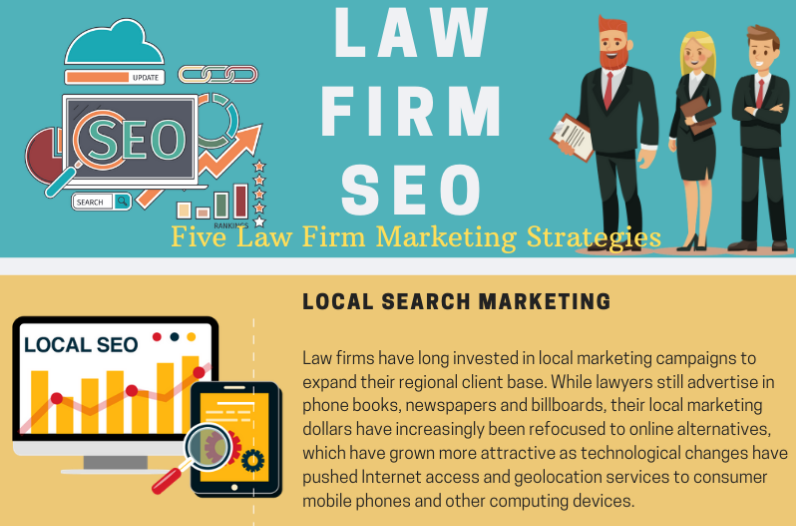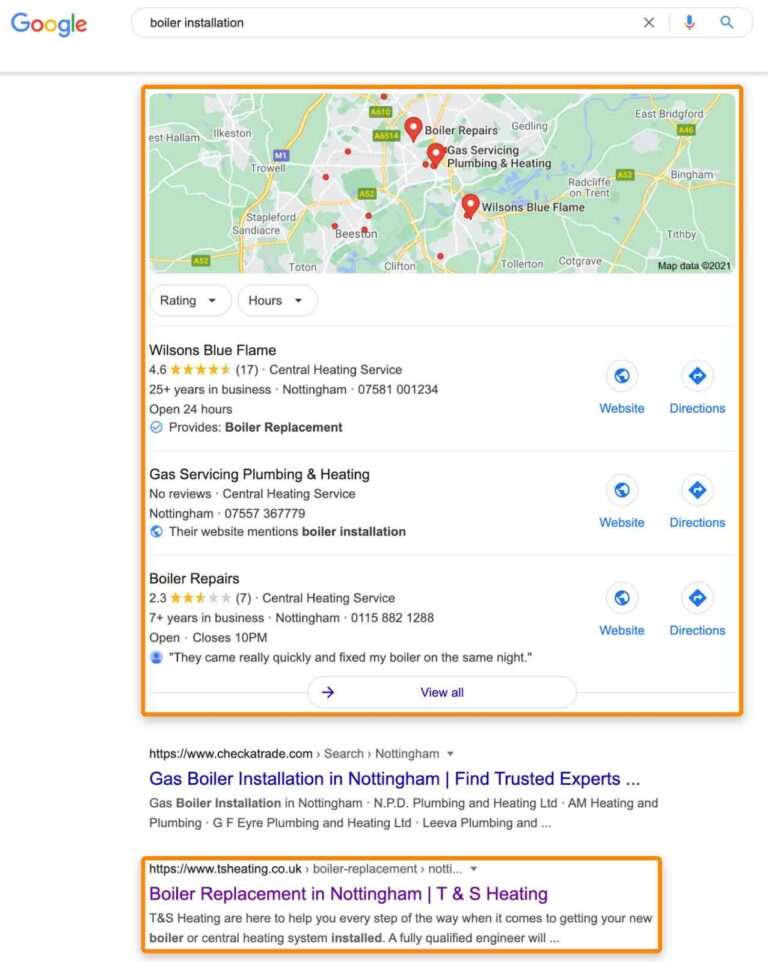Planning Law Firm SEO Strategy Like a Pro
Google is one of the real powerhouses of the internet.
Owning over 86% of the search engine market, Google organic search accounts for 59% of the world’s total web traffic.
With that in mind, law firms cannot afford to sleep on Google. After all, people use Google every day to actively search for lawyers and legal services. And Search Engine Optimization (SEO) is the key to getting your business discovered by these users.
Want to harness the power of SEO for your law firm? Here’s how to plan an SEO strategy from start to finish.
Law Firm SEO Defined

Before you start planning your SEO strategy, you need to understand what SEO for law firms is and why it matters for your law firm.
Law Firm SEO refers to the practice of optimizing your website and online platforms to rank high in search engines in order to drive organic traffic to your law firm. It involves targeting the search terms (i.e. “keywords”) that people are using to find services like yours.
Benefits of SEO for Law Firms

SEO is important to law firms for several reasons. SEO allows you to:
Target people searching for the types of services you offer, in your local area
Optimize your website experience to be faster and easier to use
Resolve technical issues on your site that may be degrading performance
Publish valuable and relevant content for your audience
Reach more users through online directories and local listings
Improve engagement, clicks and lead generation on your website
Increase your visibility in video search and YouTube
The benefits of SEO for law firms don’t stop there, but the success of your SEO depends on having a data-driven strategy. Below, we’ll dive into how to get the most out of your SEO efforts.
Step 1: Launch Your Law Firm’s Website

Your law firm website is one of the most important assets you have when it comes to your digital marketing. It is the main platform needed to optimize for Google and generate organic leads.
Your website’s infrastructure, design, experience, and content all play an important role in driving traffic and converting visitors into potential customers. With that in mind, you’ll want a site that ticks all the boxes:
Design – Your website should be attractive, professional and well designed. Whether you use a template or hire a designer, it’s important that your website looks good to your potential customers.
Speed - Your website needs to have a fast load time so that your content is easily rendered and visible to your website visitors. If it’s slow, it can drive away new customers.
Experience – A positive website experience is necessary to make a good impression on visitors. That means having interactive design elements, great design for mobile and desktop devices, and engaging images and media.
Infrastructure – Your website may look great, but technical infrastructure is very important. You want a site that is technically sound, secure, fast, and indexable by search engines.
Content – Your website content makes all the difference in attracting new users and converting them into customers. “Content” here means the words on the web page, images, videos, downloads and any other content asset that communicates a message to its users.
Once you’ve launched (or redesigned) an attractive, fast, and easy-to-use website, you can start optimizing your website to generate organic traffic using SEO.
Step 2: Conduct SEO Keyword Research

“Keywords” are the terms people enter into Google Search to find information, products, companies, etc. For law firms, keywords mean the words potential clients use to find lawyers, legal information, and legal services.
Your keyword strategy lays the foundation for your SEO efforts because it determines which keywords you expect to rank for. Believe it or not, different law firms require different keyword strategies because the terms vary depending on industry, location, and target audience.
First, make a list of words that you associate with your law firm. For example, for a family law firm, some words might be “family lawyer”, “family law services”, “divorce file”, etc.
Then consider which of these terms should be modified with a geospecific term. In most cases, if you serve a specific geographic area, you will want to target geo-specific terms. For example: “Seattle family law”, “Seattle family attorney”, etc.
Once you’ve created a relatively exhaustive list of terms related to your business and services, use an SEO tool to research each keyword’s search volume and keyword difficulty. We recommend tools like SEMRush.com or Ahrefs.com to do this. They will let you know if a term is being searched and how difficult it is to rank for it.
Finally, use your chosen SEO tool to find additional keywords. You can use the related keywords report or search your competitors’ domains to find untapped keyword opportunities. Add these keywords to your list to establish the foundation of your SEO strategy.
Step 3: Develop Optimized Content

Your keyword research will gradually reveal which terms you should optimize your site for. For example, search volume data might show that “Seattle family attorney” is a term worth targeting on your site.
Keywords can be mapped to new or existing web pages. Be sure to “group” keywords that are closely related to each other. For example, your “Seattle divorce law services” page should probably also target “Seattle divorce attorney” and “Seattle divorce attorney.”
Once you’ve mapped these keywords to existing pages or new page topics, you can start a framework for optimizing or creating content, respectively. Here are the basics to consider:
Title Tags – Use the main keyword chosen for your page within what is called the “title tag” of the page. For example, the title tag of a Divorce Law Services page might be: “Divorce Law Services Seattle | PP&G Legal Group”
Meta Descriptions – The meta description is the encoded element on a web page that describes the subject of the page. You can use a primary or related keyword here. For example, a great meta description for a Divorce Law Services page might be: “Looking for Divorce Law Services in Seattle? PP&G Law Group helps individuals and families navigate the process of divorce, filing, mediation and more.”
H1 Heading – The H1 heading is another coded element that is usually the visual heading on a web page. It is usually a slightly different version of the title tag. For example, “Divorce Law Services” is typically an appropriate H1 heading for such a page.
Body Content – The body content on a page is the bulk of the content. It is the content that portrays the information or effectively describes the service. Your body content should use your keywords naturally throughout the page and ideally provide more value than your competitors’ pages ranking for the same terms.
This is just the tip of the iceberg when it comes to what is called “on-page SEO”. On-page SEO, in general, involves writing content that benefits your users and is optimized for the keywords you want to target.
Step 4: Own Your Local Organic Presence
Law firms rely heavily on local SEO to reach users in a specific geographic market. If you only serve certain cities, states or counties, you will need local SEO.
Local SEO, as mentioned earlier, involved optimizing for geographic location-specific terms and/or location-specific platforms. For example, you want to optimize your site for city-related keywords and build your local listings, reviews, and directories.
Here are the basics of local SEO for law firms:
Keywords – target keywords that contain geo-specific modifiers related to the markets you serve.
Content – Create content on your site optimized for geo-specific keywords (this includes web pages and some blog article topics)
Google My Business – Google My Business (GMB) is a free platform that all businesses can use to host their business information on Local Search. Create your free profile and include your contact information, website link, office photos, reviews and more.
Directories – Other directories like Yelp, Yellow Pages, Avvo and Lawyer.com allow law firms to post their business information to attract potential clients. Add your business to reputable directories (but avoid spammy ones).
Comments – Positive customer comments influence SEO and influence sales. Ask past customers to review your business on GMB, Yelp, Bing Places, and more.
A lot of local SEO requires ongoing maintenance, so be sure to monitor your listings, generate more customer reviews, and create more localized content.
Step 5: Build and Manage Your Backlinks
Backlinks are links from other websites to your own website. These backlinks lend what we call authority to your website, making it more trustworthy in the eyes of Google. Gaining backlinks from high authority sites is great for SEO.
Building backlinks is often easier said than done. Here are some ideas on how to earn backlinks:
Partnerships – Leverage existing partnerships with other law firms, blogs and companies to ask them to link to your website. This could be through you writing a guest article, them hosting you in their directory, or linking to you from an existing page or post.
PR – Conduct public relations outreach or hire a public relations agency to advocate for your law firm to be featured in industry news and publications. Help a Reporter Out is an example of a site that often seeks to feature legal experts in articles.
Guest Posting – Get in touch with high quality blogs and offer to contribute guest articles. Even better if these sites or blogs allow you to include links to their site, free of charge.
Blogging – Publish blog posts on your own website to attract attention from other websites. If your content is awesome, it can encourage other bloggers and publishers to link to your content.
Also, you can use tools like Ahrefs and SEMrush to monitor your backlinks. These tools will reveal the number of backlinks you’ve earned, the quality of the backlinks, when they were acquired, and more. This will help you track your backlink acquisition efforts.
Planning a Law Firm SEO Strategy is Simple
Many marketers would have you believe that SEO is extremely complex. In reality, the basics are relatively easy to master. Once you’ve mastered the basics, you can move on to more engaging strategies.
Of course, some markets are more competitive than others. If you’re in a competitive market, it might be worth hiring an SEO professional from a law firm for more personalized support. Even so, knowing how to plan your own SEO strategy from the start will help you better understand, implement, and measure your SEO efforts.
Every law firm can benefit from SEO. Start with the fundamentals, learn from your experiences and invest your learnings in developing a winning marketing plan for your legal business.
What is a price quote? A quote is a fixed price offer that cannot be changed once accepted by the customer. You must adhere to the quote price even if you do more work than expected. If you think this might happen, it makes more sense to give an estimate.
What is an SEO fellow?
The SEO Law Fellowship Program identifies, trains and develops talented black, Hispanic and Native American law students for summer internships at top law firms across the country.
Are law firms allowed to advertise?
Paragraph 8.9 of the Code of Conduct for Solicitors, RELs and RFLs says: You do not make unsolicited approaches to members of the public, with the exception of current or former clients, to advertise legal services provided by you or your company or Employer.
How do you post a quote on Google?
Enter quotes using the Google Docs search tool
- Open your text in Google Docs.
- Place your cursor in the document where you want to insert a quote.
- On the Tools menu, click Search.
- Type the name of a person or topic in the search box.
- Click the arrow and select Quotes.
How much does SEO cost?
The average cost of project-based SEO services ranges from $1,000 to $1 million or more. Smaller companies using local SEO can spend around $1,000 a month per project. Larger enterprise-level companies can expect to pay millions of dollars a month.
Does Google SEO cost money? There is no cost to appear in organic search results like Google, and making changes to improve your site’s SEO can greatly impact your search rankings over time. Learn more about how Google organic search works and find tips to get started here.
How much should you budget for SEO?
To generalize, most SEO experts will charge you a recurring monthly investment of $3,000 to $10,000 a month. A national or international SEO budget should never be less than $5,000 per month, and you can start a local SEO campaign in the $500 to $2,500 range.
What is the average cost for SEO services?
Average SEO costs are $100 to $250 per hour for US SEO agencies. SEO costs typically range from $2,500 to $10,000 per month for US agencies. The average SEO plan costs $2,819 per month (per Ahrefs). Overseas SEO companies can charge $10 to $50 an hour.
How much does SEO cost for a small business?
The average cost of SEO for small businesses is $750 to $2,000 per month or $5,000 to $30,000 for one-time projects. Smaller companies investing in SEO consulting services can pay anywhere from $80 to $200 an hour.
Is it worth paying for SEO?
SEO is worth it if you have the right strategy and work with a partner who knows how to get results. About 93% of online experiences start with a search engine, and the lead closing rate of SEO is much higher than that of traditional marketing. Therefore, SEO offers an impressive return on investment (ROI).
Is it worth hiring an SEO expert?
SEO managers create custom SEO strategies to help companies achieve high search rankings. A higher ranking – especially a first page one – leads to more organic website traffic and helps generate more leads, especially if you are ranking for a keyword that is central to your business.
Is SEO still worth it in 2021?
So is SEO still a good investment in 2021 and beyond?! Short answer: YES! SEO is more important than ever! It is still one of the most potent digital marketing strategies that generates long-term results.
Do I really need SEO?
It can help you increase your credibility, gain more traffic and improve your visibility online. Plus, you’ll achieve all these results by spending a penny on ad space. Plus, SEO is a great way to improve the overall experience your target audience has with your brand.
Is SEO a Waste of time?
Focusing on SEO to increase your traffic at the expense of building real relationships with your audience is a waste of time. Worse, you never know what SEO mistakes you are making unless you get some basic SEO skills. You could be penalized for keyword stuffing or for creating bad backlinks.
Can I do SEO on my own?
You can absolutely do SEO yourself or DIY SEO (Do It Yourself SEO). With some research and a lot of practice, anyone can learn how to do SEO for their business. A quick way to get started with SEO is to enter your URL here and then focus your SEO efforts on the recommended action items.
How much does it cost to do SEO yourself?
| Model | Cost |
|---|---|
| cheap seo | $500 to $3,000 per month |
| Intermediate SEO | $3,000 to $15,000 per month |
| top-notch SEO | $15,000 – $30,000 per month |
| business seo | $30,000-1 million per month |
Can I do SEO by myself?
If you’ve ever asked yourself, “Can I do SEO myself?” the answer is definitely. You don’t need to hire an outside agency to improve your SEO, and this guide provides some basic SEO tips to get you started.


